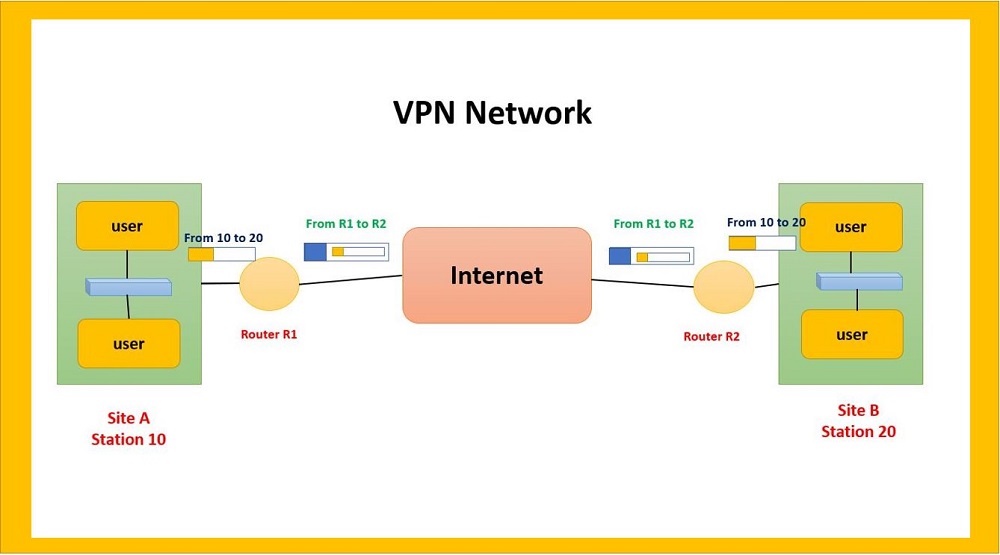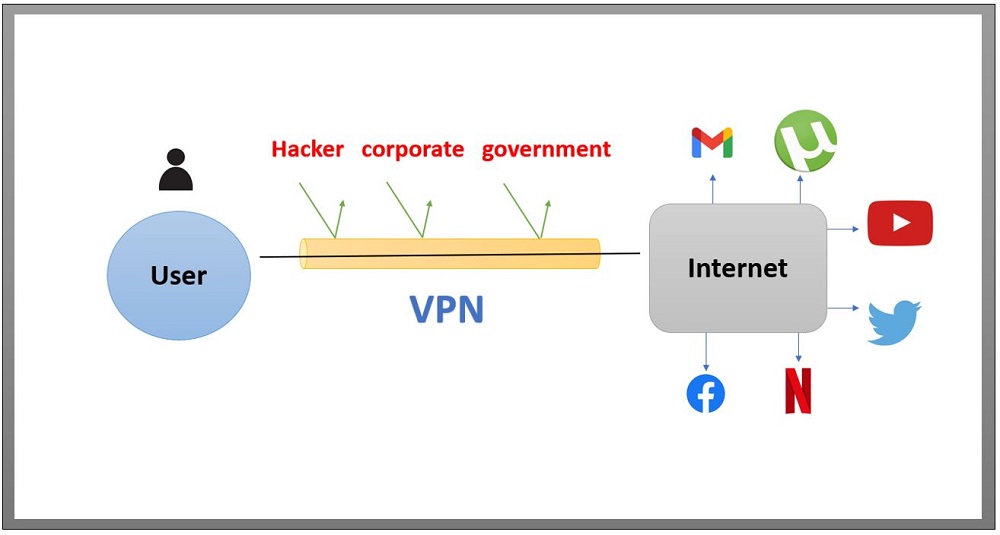Welcome folks, in this module, we are going to discuss What is VPN (Virtual Private Network) How it works?, why we need VPN, its uses, types, etc. It is one of the important topics that come under Network Security. So, let’s start reading this module.
What is VPN (Virtual Private Network)?
VPN stands for the virtual private network which provides an encrypted connection from a device to a network all over the internet. In this type of network privacy is fully maintained, i.e., sensitive types of data can be transferred safely and all this is because of the encrypted connections.
VPN prevents unauthorized people or people from unauthorized sources from entering the traffic and thus allows the users to work remotely. These types of technology are mainly used in the corporate world.
VPN is a type of network which is private but virtual, it is private because it guarantees the privacy to be maintained inside the organizations. It is virtual because it does not use real private WANs, i.e., the network is physically public but virtually private.
It can be used to hide a user’s geographical location, Internet Protocol i.e., IP address, browser history, web activity, or the devices being used. Any other user who is working on the same network will not be able to see what a user is doing who is using VPN.
It basically uses a tunnelling protocol for encrypting the data at the sender’s end and decrypting the data at the receiver’s end.
How does a VPN work?
It creates a point-to-point connection that cannot be authorized by any type of unauthorized user, and this they achieved by tunnelling, and for this, we have to create the tunnel, and the tunnelling protocol is used all over the existing network. The protocol used depends upon the platform the VPN is used on like Secure Socket Tunneling Protocol (SSTP) is used on Windows OS.
By using a tunnel, the device of the user is connected to another network while the data is encrypted, and also the IP address is hidden. This will help to hide all the private information from the attackers and from all those who are hoping to get access to the individual activities, and also it will connect the user device to some distant location to an exit node, which will look like the user is at some another location.
In simple terms, we can say, that it creates a secure tunnel from your device to another VPN server and then from there, it connects to the world wide web.
What are the types of VPN (Virtual Private Network)?
VPN is basically classified into two types:
Remote Access VPN (Virtual Private Network)
By the name only we can identify that it allows the users who are connected with the VPN network to access all the resources and services remotely. It is suitable for both individual users and for Company or business purposes. The connection which is established between the user and the network is private and secured.
Site-to-Site VPN (Virtual Private Network)
It is mainly used by large companies for their work large companies have their offices at different locations, so to connect with all the offices, they use this VPN network. It helps the company in providing security and a safer connection to connect with all the branch offices.
The site-to-site VPN is further classified into 2 categories.
Intranet-based VPN
When site-to-site VPN is used to connect many of the branch offices of the company, then it is called an Intranet-based VPN.
Extranet based VPN
When a site-to-site VPN is used to connect the office of the company to another company, then it is called Extranet based VPN.
Advantages of using VPN (Virtual Private Network)
Some of the advantages or benefits of using a VPN are:
- It helps in hiding your private information.
- It hides the user’s IP address and browser history.
- It gives the connection security by using encryption.
- It also helps in reducing the phone charges of long-distance.
Disadvantages of using VPN (Virtual Private Network)
Let’s see some of the drawbacks of using a VPN.
- The speed of the internet gets slower as the network is connected to VPN.
- VPN is not supported on all devices.
- The use of VPNs is banned and found illegal in some countries.
- It is difficult to set the VPN to the network, it depends on the type of VPN you are using.
- It is been known that paid VPNs are more trusted i.e., they are more secure.
I hope, you all enjoyed reading the What is VPN (Virtual Private Network) module and have gained a lot of knowledge about VPNs. If you are looking for such a more interesting topic in networking then stay connected. Until then Happy learning, keep reading!

